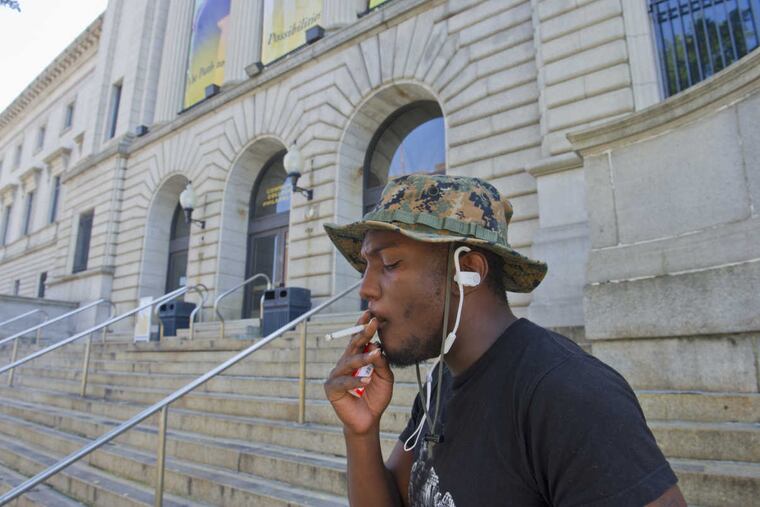Letters: Philly's tougher smoking rules will help save lives
Smoking rules will save lives Given all that we now know, we must do everything in our power to keep young people from starting to smoke, including following the new regulations put forth by the Philadelphia Department of Health.

Smoking rules will save lives
Given all that we now know, we must do everything in our power to keep young people from starting to smoke, including following the new regulations put forth by the Philadelphia Department of Health.
Philadelphia has one of the highest rates of smoking of any large U.S. city and nearly one in four retailers sells tobacco products illegally to youth smokers. These new regulations would limit tobacco retailers near schools and would make the penalty more severe for stores caught selling tobacco to minors.
With these regulations, I hope future medical students will hear from fewer patients who bitterly regret the toll smoking has taken on their health and the health of those around them.
|Kristen M. Kelly, Sidney Kimmel Medical College, Thomas Jefferson University, Philadelphia
Hershey cares about students
A Dec. 7 article, "Fragile, and Shown Door," is another example of the Inquirer's consistently biased reporting on the Milton Hershey School. This time you crossed the line by insinuating we automatically suspend students who attempt suicide and do not consult with health experts and families about these decisions. This is false, as we made clear to your reporter.
MHS is a self-sufficient private institution guided by experts and it follows best practices for student health and academics. We do have health professionals on staff and go to great lengths to address each student's psychological and medical needs, whether acute mental health issues or cancer treatment.
Sometimes in these severe cases, despite our greatest efforts and expense, a boarding school setting is not conducive to recovery.
|Lisa Scullin, vice president of communications, Milton Hershey School, Hershey
Protect Delaware River Basin
Despite the incredible natural resources that the Delaware River Basin provides, it lacks the basin-wide strategies and federal support afforded to other major watersheds. The Delaware River Basin Conservation Act seeks to change this with a non-regulatory restoration program in the U.S. Fish and Wildlife Service. This program could fund projects in and around the Delaware River and Bay, like those that restore shellfish and wetlands, manage stormwater, and help clean our rivers and streams, including those that provide drinking water for millions in and near Philadelphia.
Thanks to the leadership of Sens. Tom Carper (D., Del.) and Corey Booker (D., N.J.) and Congressmen John Carney (D., Del.) and Ryan Costello (R., Pa.), our region is remarkably close to securing these new resources. This is a unique opportunity to get something done in Washington that will benefit everyone in the Delaware Valley. To learn more about the DRBCA, visit www.delriverwatershed.org/drbca.
|Jennifer A. Adkins, executive director, Partnership for the Delaware Estuary, WWilmington, nj@heart.org
Estate tax good for America
According to Forbes magazine, Alice B. Walton and Jacqueline Mars have a combined wealth in excess of $55 billion. Michael Bloomberg is the eighth wealthiest person in the world, with estimated wealth of $40 billion. If these individuals were to die today, their beneficiaries could only receive $57 billion. Why? Because the balance, $38 billion, would be payable to the federal government under the current estate tax system. That revenue could be used to pay more than 750,000 infrastructure workers a wage of $50,000.
Why should the federal estate tax, which has served as a source of federal revenue for 100 years, be repealed and deprove the federal government of revenues to help pay hundreds of thousands of workers? Repeal of the estate tax would be a slap in the face to Donald Trump's blue-collar supporters. Indeed, more than 99 percent of the population will never pay any federal estate taxes under the current system because the first $5.5 million of wealth is exempt.
|Ira Mark Bloom, professor, Albany Law School, Albany, N.Y.